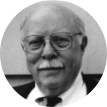Making a Living, Making a Life By Daniel Rose, CRE (©2014, Half Moon Press, 366 pages)
Daniel Rose, CRE, has had an extraordinary business career including developing Pentagon City in Washington, D.C., and One Financial Center in Boston. He developed Manhattan Plaza for the Performing Arts in New York City. He is not only an icon of the past sixty years of real estate development, but he is also an acclaimed, treasured and award winning essayist and public speaker. His range of topics is eclectic, including happiness, urban development, history, foreign policy, American race, and his deep interests in religion and philanthropy. There is no one else I know who could receive enthusiastic testimonials from as wide a range of fellow icons as Jacques Barzan, Henry Louis Gates, Jr., Fareed Zakaria, Anthony Downs and Paul Goldberger.
He has won four Cicero speech writing awards (for having written the best speeches on four different topics), and he is a member of the American Academy of Arts and Sciences. Making A Living, Making A Life is a collection of nearly 50 essays and speeches that are filled with humanity, intelligence and a full lifetime of “doing the right thing.” If one could convince our business and political leaders to read and think about Dan’s sage and practical wisdom, we could ameliorate many of our systemic problems. His broad range, keen wit and basic decency make him a true “Renaissance Man.”
I am proud to confess a 40 year friendship with Dan, through the Urban Land Institute and The Counselors of Real Estate. I also have an interest in writing and teaching, and I have published a hundred magazine articles and a couple of books. While perhaps equaling Dan in numbers of articles and speeches, my content is woefully non– comparable. Many years ago, Dan and I began the habit of sharing our written material with one another.
His comments were always generous, insightful, and, above all encouraging. In fact, he mentions my book on leadership in one of his essays, and he has patiently sat through a couple of my speeches. That is a sign of true friendship, indeed.
The essay titles alone assure the reader that something interesting lies ahead: Talleyrand Entertains Metternich, Fighting Alligators vs. Draining the Swamp, Ulysses and Modern Business Enterprise, You Didn’t Build That Alone and Gertrude Stein and the Real Estate Markets. Rose’s thesis is stated early on: “Morality and worldly success are not now and never have been, necessarily incompatible. Just as every society contains some people with larceny in their hearts, so every society known to man has had people who conducted themselves with honor and who led satisfying and fulfilling lives in the process.” At the same time, he raises the cautionary yellow flag: “In the business world as in life generally, there are temptations, pressures, morally ‘gray’ areas. In many fields, what is technically ‘legal’ may not be truly ethical.” “… morality is demonstrated not by what you believe or say, but by what you do … morality … is developed over a lifetime through the influence of parents, teachers and religious leaders.”
Rose champions a balanced life, which for him includes the following:
My personal life: My family
My professional life: Rose Associates
My public life: Politics, civic organizations, professional groups
My philanthropic life: to which I give my time, my thought and my money
My inner life: My intellectual and spiritual concerns, those inner voices one hears when no one else is listening.
With respect to philanthropy, Rose challenges young people: “So my final word to is to wish you success in earning your fortune, success in enjoying it and success in disposing of it.”
I was deeply impressed by Rose’s obvious commitment to his Jewish faith and his willingness to share his religious views and his inner life throughout the collection. He is a man who is “comfortable in his own skin.” Dan writes: “What Jung called key racial memories must be kept fresh and alive: the sense of historical continuity; the values and ideals of the ‘extended family’ carried out to one’s neighbors and the community beyond; and the sense of being ‘chosen’—not in terms of privilege, but of obligation. Jews should feel not that they are better, but that they should be.”
He defines happiness as “a byproduct that comes, not from all activity you engage in, but from the life you lead. Happiness reflects values, attitudes, and the sense of being at peace with oneself.” “Happiness flows from producing more than you consume, from seeing the shine in the eyes of those you have helped, from expending your energies in a struggle, whether won or lost, that you know was worth the effort. The happiest people have family and friends; they belong to a community; they have more than a job, they have careers; they identify with causes larger than themselves; and, most important, their lives have meaning and purpose.”
His wit sparkles throughout. “We should remember that Jack Kennedy noted not only that ‘the rising tide lifts all boats,’ but also, as he smirked privately to friends, ‘when the police raid a house, they take all the girls.’”
This book is a wonderful antidote to “Trumpism” and can make a fine gift from a parent or mentor to a younger person. It elevates the possibility of leading a successful business life (even as a developer!) together with a successful personal life, while keeping the faith and without having to become a billionaire.





